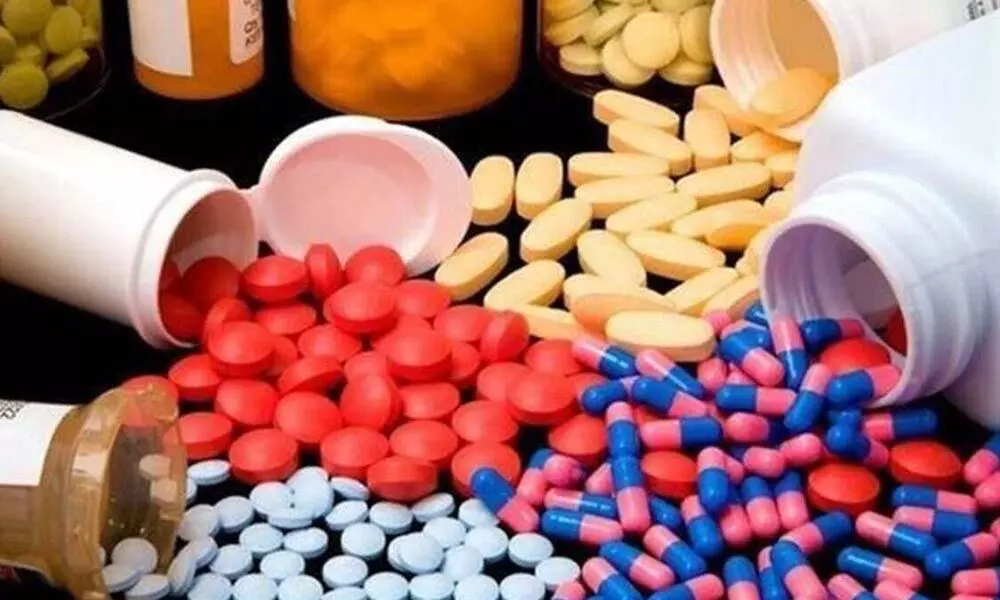Live
- 25% rise in internship opportunities observed in 2024: Survey
- Scholarships For Students
- Student Survives a Near-Fatal Accident at Pallavi Model School
- Prisoner in Sangareddy Central Jail Suffers Heart Attack
- Targeting gut cells may open new way to reduce depression & anxiety
- ‘Daaku Maharaaj’ to kickstart musical promotions
- ‘Game Changer’ team teases with a new promo
- Nara Lokesh emphasises overhaul of govt. schools and mid-day meal program
- Amid turmoil, air pollution peaks in Bangladesh as temperatures fall
- Google Trends unveils list of most searched ‘Indian Movies of 2024’
Just In
IIT-Hyderabad ready with oral drug tech to fight black fungus


IIT-Hyderabad ready with oral drug tech to fight black fungus
In a major development, researchers from the Indian Institute of Technology, Hyderabad (IIT-H) have announced that they are ready to transfer the technology to the pharmaceutical companies interested in the production of an oral solution to treat 'black fungus'
Hyderabad: In a major development, researchers from the Indian Institute of Technology, Hyderabad (IIT-H) have announced that they are ready to transfer the technology to the pharmaceutical companies interested in the production of an oral solution to treat 'black fungus'.
The IIT-H researchers' announcement has come amidst the scarcity of Amphotericin B injection to treat 'black fungus' infection forcing the country to import it from different countries.
Instead, IIT-H discovered 60-mg AmB tablet costs only about Rs 200 and has enhanced absorption and patient-friendly. According to IIT-H, the research was carried out by Prof Saptarshi Majumdar and Dr Chandra Shekhar Sharma from the Department of Chemical Engineering, who have made a proven study on the oral nano-fibrous AmB to be effective for Kala Azar.
It was done in 2019 and the first-ever attempt to fabricate nano-fibrous oral tablets of Amphotericin B for the potential cure of Kala Azar. With 2 years of advancement of examination, the researchers are now confident that the technology can be transferred to suitable pharma partners for large-scale production.
At present, Kala Azar treatment is being used as a treatment for black fungus in the country and its availability & affordability ideal for allowing it as emergency trial for the black fungus cure.
The researchers said due to its amphiphilic nature, AmB has poor aqueous solubility and forms aggregates in the system, which stresses renal filtration and thus causing nephrotoxicity.
This is the reason the oral administration has abstained, although being the most comfortable and effective route.
In the present research, funded by DST-Nanomission, a team led by Prof Saptarshi Majumdar and Dr Chandra Shekhar Sharma along with their PhD scholars Mrunalini Gaydhane and Anindita Laha, intended to deliver Amphotericin B orally at an extremely slow rate, of course within the therapeutic window. The purpose was to increase the drug absorption and reduce aggregation to lower the drug toxicity. For this, the team has selected gelatin, an FDA-approved polymer as an excipient for drug molecules.
Citing the importance of solutions in given circumstances, Dr Chandra Shekhar Sharma, Associate Professor, Department of Chemical Engineering, said, "As the main idea behind our research is to find a solution to serve society. The technology developed, is made free from IP, so that it can be mass-produced and is affordable and available to the public at large."
People and other pharma entities interested in the technology transfer can reach the researchers through the IIT-H, public and corporate relations office at [email protected], he said.

© 2024 Hyderabad Media House Limited/The Hans India. All rights reserved. Powered by hocalwire.com






